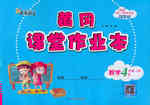题目内容
【题目】任务型阅读
请认真阅读下列短文,并根据所读内容在文章后表格中的空格里填入一个最恰当的单词。
注意:请将答案写在答题卡上相应题号的横线上。每个空格只填1个单词。
Simon Sinek is naturally shy and doesn’t like speaking to crowds. At parties, he says he hides alone in the corner or doesn’t even show up in the first place. He prefers the latter. Yet, with some 22 million video views under his belt, the optimistic ethnographer also happens to be the third most-watched TED Talks presenter of all time.
Sinek’s unlikely success as both an inspirational speaker and a bestselling author isn’t just dumb luck. It’s the result of fears faced and erased, trial and error and tireless practice, on and off stage. Here are his secrets for delivering speeches that inspire, inform and entertain.
Don’t talk right away.
Sinek says you should never talk as you walk out on stage. “A lot of people start talking right away, and it’s out of nerves,” Sinek says. “That communicates a little bit of insecurity and fear.”
Instead, quietly walk out on stage. Then take a deep breath, find your place, wait a few seconds and begin. “I know it sounds long and tedious and it feels excruciatingly awkward when you do it,” Sinek says, “but it shows the audience you’re totally confident and in charge of the situation.”
Show up to give, not to take.
Often people give presentations to sell products or ideas, to get people to follow them on social media, buy their books or even just to like them. Sinek calls these kinds of speakers “takers,” and he says audiences can see through these people right away. And, when they do, they disengage.
“We are highly social animals,” says Sinek. “Even at a distance on stage, we can tell if you’re a giver or a taker, and people are more likely to trust a giver — a speaker that gives them value, that teaches them something new, that inspires them — than a taker.”
Speak unusually slowly.
When you get nervous, it’s not just your heart beat that quickens. Your words also tend to speed up. Luckily Sinek says audiences are more patient and forgiving than we know.
“They want you to succeed up there, but the more you rush, the more you turn them off,” he says. “If you just go quiet for a moment and take a long, deep breath, they’ll wait for you. It’s kind of amazing.”
Turn nervousness into excitement.
Sinek learned this trick from watching the Olympics. A few years ago he noticed that reporters interviewing Olympic athletes before and after competing were all asking the same question. “Were you nervous?” And all of the athletes gave the same answer: “No, I was excited.” These competitors were taking the body’s signs of nervousness — clammy hands, pounding heart and tense nerves — and reinterpreting them as side effects of excitement and exhilaration.
When you’re up on stage you will likely go through the same thing. That’s when Sinek says you should say to yourself out loud, “I’m not nervous, I’m excited!”
Say thank you when you’re done.
Applause is a gift, and when you receive a gift, it’s only right to express how grateful you are for it. This is why Sinek always closes out his presentations with these two simple yet powerful words: thank you.
“They gave you their time, and they’re giving you their applause.” Says Sinek. “That’s a gift, and you have to be grateful.”
Passage outline | Supporting details |
【1】to Simon Sinek | ●He is by【2】shy and dislikes making speeches in public. |
Tips on delivering speeches | ●Avoid talking【4】for it indicates you’re nervous. |
●Try to be a giver rather than a taker because in【6】with a taker, a giver can get more popular and accepted. | |
●Speak a bit slowly just to help you stay calm. | |
●Switch nervousness to excitement by【9】the example of Olympic athletes. | |
●Express your【10】to the audience for their time and applause to conclude your speech. |
【答案】
【1】Introduction
【2】nature
【3】constant / tireless / continuous
【4】immediately / instantly
【5】impression
【6】comparison / contrast
【7】benefit / learn
【8】bore / disgust
【9】following / copying
【10】gratitude / thanks / appreciation
【解析】试题分析:西蒙斯涅克天生腼腆,连派对都不敢参加,但经过不知疲倦的练习,他最终成为史上最受欢迎的TED演讲者之一。如果你认真领会并践行他提供的建议,你或许也可以成为一位魅力四射的演讲达人。
【1】Introduction由全文第一段可知,此段为西蒙斯涅克个人简单介绍。Introduction介绍,引言;名词,可置于of前。故填Introduction
【2】nature 由第一段第一句,Simon Sinek is naturally shy西蒙斯涅克天生腼腆。此空by译为天生的额,后接nature原形。故填nature
【3】constant / tireless / continuous由第二段最后一句It’s the result of fears faced and erased, trial and error and tireless practice, on and off stage句意:他的成功源自他在台上台下无数次面对恐惧又战胜恐惧,反复试错,不知疲倦的练习。故填constant / tireless / continuous
【4】immediately / instantly第一点建议为,Don’t talk right away不要一开场就滔滔不绝。即Avoid talking(此空副词形式),故填immediately / instantly
【5】impression第一点建议中 but it shows the audience you’re totally confident and in charge of the situation.得知要创造一个自信的印象create an impression that you are confident.故填impression
【6】comparison / contrast第二点建议末尾处than a taker,得知这是在比较giver和taker,故填comparison / contrast
【7】benefit / learn第二点建议末尾处,teaches them something new,得知观众从中受益或受教。考虑到后接form,故填benefit / learn
【8】bore / disgust第三点建议中They want you to succeed up there, but the more you rush, the more you turn them off他们希望你的演讲成功,但你说话的速度越快,就会越让人失望。故填bore / disgust
【9】following / copying 第四点建议开头处,Sinek learned this trick from watching the Olympics. 句意:斯涅克在看奥运会比赛的时候学会了这一点。故填following / copying
【10】gratitude / thanks / appreciation 第六点建议Say thank you when you’re done. 掌声是听众给你的礼物,而在收到礼物时,你应该表达自己的感激之情。故填gratitude / thanks / appreciation

 中考利剑中考试卷汇编系列答案
中考利剑中考试卷汇编系列答案 教育世家状元卷系列答案
教育世家状元卷系列答案 黄冈课堂作业本系列答案
黄冈课堂作业本系列答案【题目】高二阶段学习比较紧张,正确的学习方法尤为重要。下表显示了两位同学不同的学习方法,请简述并发表你的观点。 字数在100—120之间。文章开头已经给出。
学习方法 | 李华 | 王海 | 你的观点 |
白天 | 上课专心听讲,尽可能经常老 师请教疑难问题。 | 上课打瞌睡,漏掉了许多要点。 | |
晚上 | 花较少时间完成作业,早点休息,上课经常保持旺盛的精力 | 花较多的时间完成作业,熬夜学习,导致注意力无法集中。 |
参考词汇: attentively 专心
energetic 精力旺盛
concentrate on 集中精力于
effectively 有效地